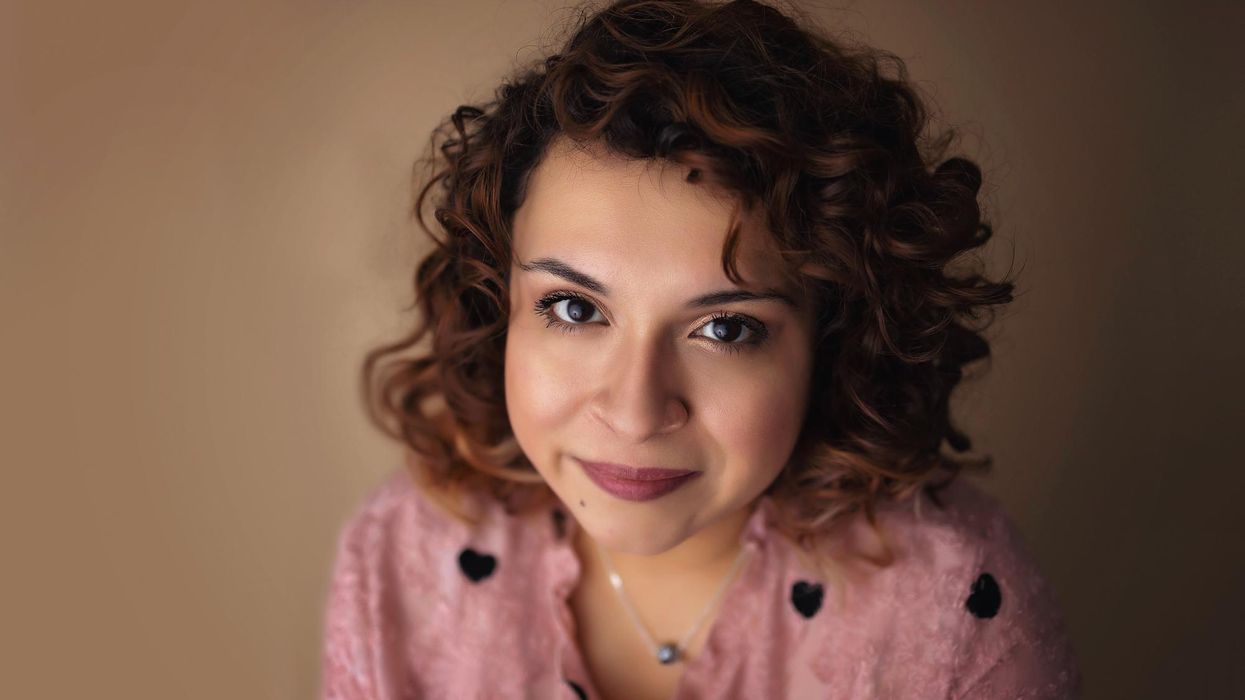As told to Nicole Audrey Spector
My menstrual cycle was never regular. My periods were always too long, too short, too heavy, too frequent. There were times when it worried me, but after years of normal Pap tests, a healthy pregnancy, and unfazed doctors who said it was all hormonal or linked to my well-managed hypothyroidism, I figured that was just the way I was built.
But I knew something was wrong in March 2020 when my menstrual bleeding became intense and constant. This was at the beginning of Covid, so going to the doctor wasn’t the easiest task.
It wasn’t until I nearly fainted one day that I realized I needed help. I met with a primary care physician via telehealth and explained my symptoms: excessive bleeding, abdominal pain, fatigue and lightheadedness. She recommended that I go on birth control to regulate my cycle. She also suggested a pelvic ultrasound.
I was 35 and my husband and I had been trying to get pregnant with a second child, so birth control wasn’t exactly a desirable plan of attack, but I was desperate for relief.
Thirty days went by on birth control. The bleeding didn’t let up. “It takes time,” the doctor told me. Another 30 days. “Give it more time,” she said. Another 30 days …
Admittedly I’d been dragging my feet on getting the ultrasound for fear of exposure to Covid, but after months of being on birth control with minimal change I knew I couldn’t delay anymore.
I chose a new primary care doctor who told me to see an OB-GYN for further testing. This new doctor wanted to get to the root of the bleeding and said that seeing an OB-GYN could help me find some answers.
Under the care of the OB-GYN, I had a pelvic exam and ultrasound that revealed that everything looked normal. My Pap test also came back fine.
The OB-GYN seemed confident that this was a hormonal issue and encouraged me to stick with birth control. When I told her it wasn’t working, she repeated that same tired phrase: “It takes time.”
In retrospect, it all seems unbelievable. I began to believe that perhaps things weren’t really that bad. I adapted to the agony and got used to changing my tampon and pad every 20 minutes for another entire year.
After another near-fainting incident, I met with a new primary care physician who was appalled by what I described as my daily life. We found out that I was so anemic I was barely above needing a blood transfusion.
I met with a new OB-GYN who took my symptoms seriously and moved fast, ordering a pelvic ultrasound and a biopsy of my uterus. I was overwhelmed with relief to finally have someone in my corner.
“I honestly think you have an ovary issue,” she told me. “We’re just doing the biopsy as a precaution.”
Things were looking like they were finally going to be okay. Just an ovary issue!
But then the biopsy results came back, showing that I had endometrial cancer. I was in absolute shock, but marched on with laser-sharp focus, ready to throw myself into the fight against cancer.
It turned out that the cancer was very early (stage 1A, to be exact). Two options were presented to me: undergo an abdominal hysterectomy or face a future of constant biopsies and dilation and curettage (D&C) procedures.
Best-case scenario, I had a very small chance of getting pregnant.
The one uterine biopsy I’d endured had been torture. I couldn't fathom having to go through that again. I wanted to have another baby so much, but I wanted to live cancer-free for my husband and son even more. Without hesitation I chose the hysterectomy, with the full support of my family.
Fortunately, the cancer hadn’t spread past my uterus. The hysterectomy left me cancer-free, and once my body healed, I was able to get my life back — although a slightly more anxious version. I have a therapist now, who helps me a lot.
But I still wonder, What if the doctors had taken my symptoms more seriously in the early stages? Would I have lost less? And then I think about that second pregnancy I will never get to experience. I don’t regret the choice to have a hysterectomy, but it breaks my heart that I had to choose in the first place.
With time, I am more able to focus less on what I’ve lost and more on what other women have to lose. I’m a member of a few online endometrial cancer support groups where I see too many women going through what I went through. I see them managing to get through unbearable days where no medical professionals seem to be really hearing them. I’m quick to share my story and to insist that your first stop if you’re experiencing irregular bleeding is the OB-GYN. Request all the tests from them. Request a biopsy.
Keep going until you are heard — even if it means you have to scream.
This resource was created with funding and support from Eisai Inc.







